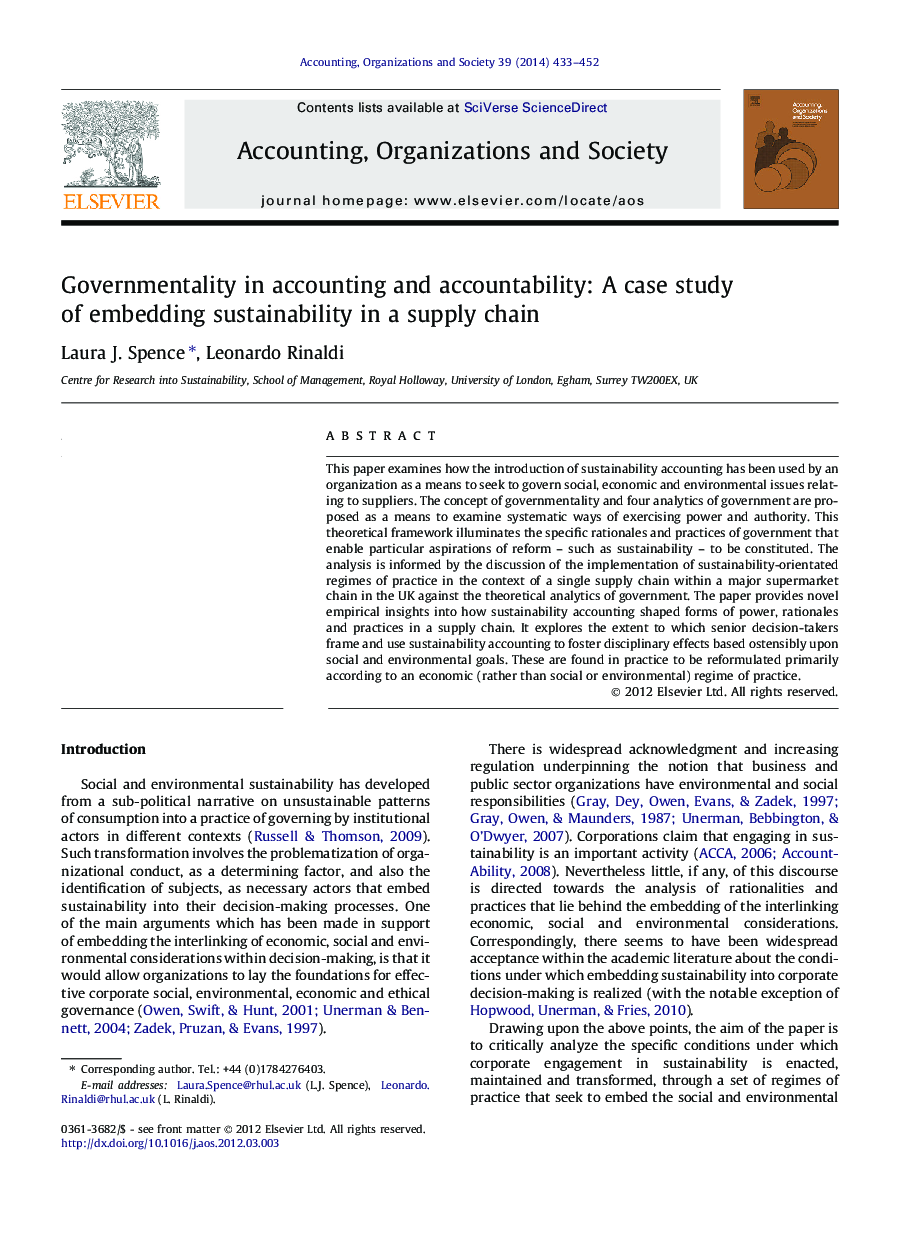| Article ID | Journal | Published Year | Pages | File Type |
|---|---|---|---|---|
| 878583 | Accounting, Organizations and Society | 2014 | 20 Pages |
This paper examines how the introduction of sustainability accounting has been used by an organization as a means to seek to govern social, economic and environmental issues relating to suppliers. The concept of governmentality and four analytics of government are proposed as a means to examine systematic ways of exercising power and authority. This theoretical framework illuminates the specific rationales and practices of government that enable particular aspirations of reform – such as sustainability – to be constituted. The analysis is informed by the discussion of the implementation of sustainability-orientated regimes of practice in the context of a single supply chain within a major supermarket chain in the UK against the theoretical analytics of government. The paper provides novel empirical insights into how sustainability accounting shaped forms of power, rationales and practices in a supply chain. It explores the extent to which senior decision-takers frame and use sustainability accounting to foster disciplinary effects based ostensibly upon social and environmental goals. These are found in practice to be reformulated primarily according to an economic (rather than social or environmental) regime of practice.
